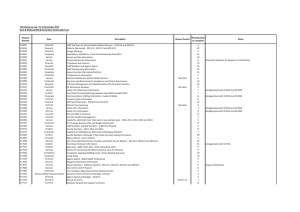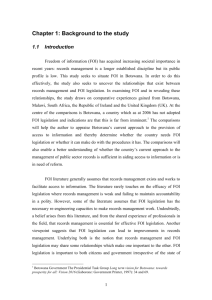Foi Briefing - University of Exeter
advertisement
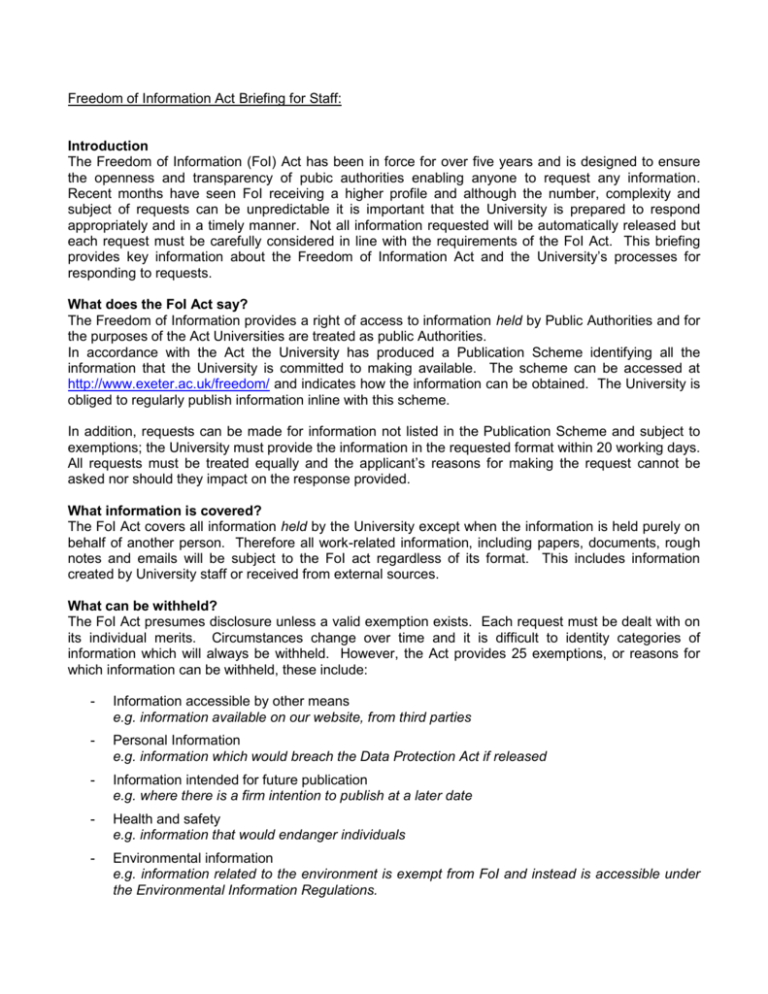
Freedom of Information Act Briefing for Staff: Introduction The Freedom of Information (FoI) Act has been in force for over five years and is designed to ensure the openness and transparency of pubic authorities enabling anyone to request any information. Recent months have seen FoI receiving a higher profile and although the number, complexity and subject of requests can be unpredictable it is important that the University is prepared to respond appropriately and in a timely manner. Not all information requested will be automatically released but each request must be carefully considered in line with the requirements of the FoI Act. This briefing provides key information about the Freedom of Information Act and the University’s processes for responding to requests. What does the FoI Act say? The Freedom of Information provides a right of access to information held by Public Authorities and for the purposes of the Act Universities are treated as public Authorities. In accordance with the Act the University has produced a Publication Scheme identifying all the information that the University is committed to making available. The scheme can be accessed at http://www.exeter.ac.uk/freedom/ and indicates how the information can be obtained. The University is obliged to regularly publish information inline with this scheme. In addition, requests can be made for information not listed in the Publication Scheme and subject to exemptions; the University must provide the information in the requested format within 20 working days. All requests must be treated equally and the applicant’s reasons for making the request cannot be asked nor should they impact on the response provided. What information is covered? The FoI Act covers all information held by the University except when the information is held purely on behalf of another person. Therefore all work-related information, including papers, documents, rough notes and emails will be subject to the FoI act regardless of its format. This includes information created by University staff or received from external sources. What can be withheld? The FoI Act presumes disclosure unless a valid exemption exists. Each request must be dealt with on its individual merits. Circumstances change over time and it is difficult to identity categories of information which will always be withheld. However, the Act provides 25 exemptions, or reasons for which information can be withheld, these include: - Information accessible by other means e.g. information available on our website, from third parties - Personal Information e.g. information which would breach the Data Protection Act if released - Information intended for future publication e.g. where there is a firm intention to publish at a later date - Health and safety e.g. information that would endanger individuals - Environmental information e.g. information related to the environment is exempt from FoI and instead is accessible under the Environmental Information Regulations. In many cases if an exemption applies, the University must also consider the Public Interest and whether it is in the Public interest to release the information and this may result is the release of information regardless of the exemption. Where information is to be withheld the University must issue a formal refusal notice and provide the opportunity of appeal. The release of information under the FoI Act does not impact on copyright and any individual receiving information is still bound by an obligation to respect any intellectual property rights held within it. The Process In order to avoid later complications and ensure due process it is important that all FoI requests are dealt with consistently, in-line with the University process. All requests (excluding requests made under Environmental Information Regulations) must be made in recorded format (e.g. email). They can be addressed to any member of staff and do not need to mention Freedom of Information. Applicants are encouraged to use the dedicated email address (foi@exeter.ac.uk). All requests must be dealt with within 20 working days and staff absence and University closure days are not an excuse for missing the deadline. If you receive a request directly you should contact the FoI officer who will be able to provide support and advice in responding. If for any reason you have concerns about releasing information please ensure that you raise them with FoI Officer, there may be exemptions that can be applied, in which case a formal decision notice must be issued by the FoI Officer. Charging for Requests In the overwhelming majority of cases the University cannot charge for FoI requests. Where the costs incurred in determining whether information is held, locating and retrieving the information exceed £450 the University is not obliged to provide the information. With staff time calculated at £25 per hour this equates to 18 hours work before the University can consider charging or refusing a request. In all cases we must offer advice and assistance to help alter a request to reduce the cost of collating the information and therefore bring it below the £450 limit. Complaints In all responses the University provides details of its complaints process, where an individual can request an internal review of the University’s response which will normally be overseen by the Registrar and Deputy Chief Executive or a Deputy Vice-Chancellor. If they remain unhappy with the outcome of the internal view they can then complain to the Information Commissioner’s office who will assess the case and issue a decision notice, either party can then appeal to a tribunal. Further information It is vital the University has a consistent approach to FoI, if you receive any FoI requests or require any more information about the Freedom of Information Act please contact foi@exeter.ac.uk Caroline Dominey July 2010


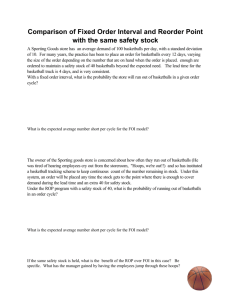
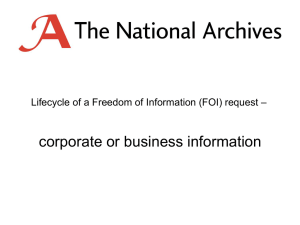
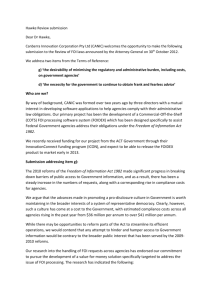

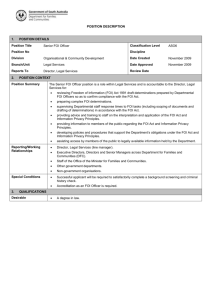
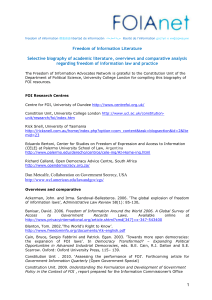

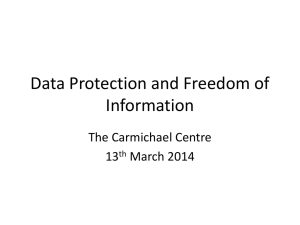
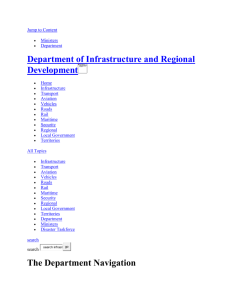
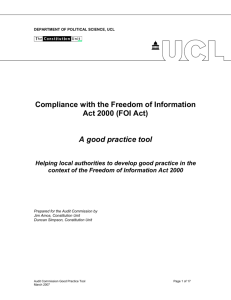
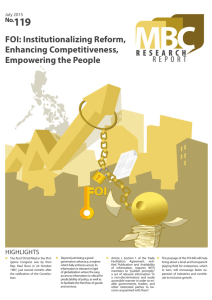
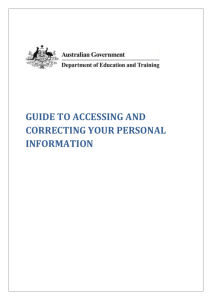
![Department of Foreign Affairs and Trade [DOC 166KB]](http://s3.studylib.net/store/data/007373008_1-d0a44003bcc0e600e8b2a6406bf082fe-300x300.png)


